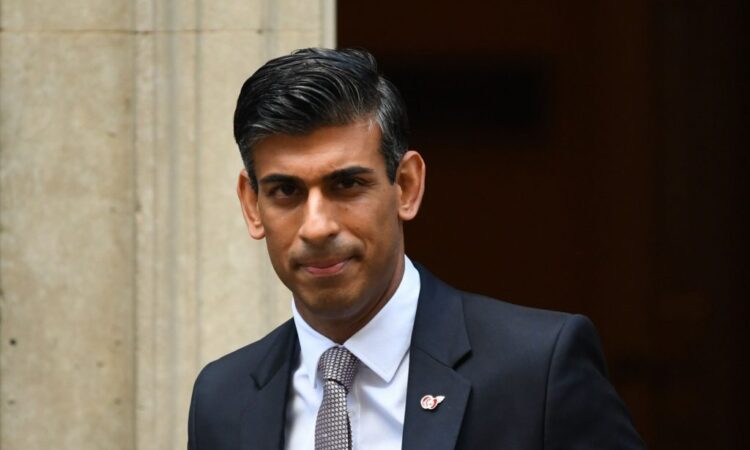
Prime Minister Rishi Sunak is committing more than £360 million to cutting-edge technologies under plans to make Britain a science “superpower” by the end of the decade, as he starts to sketch out his vision in the build-up to next week’s budget.
Under a 10-point Science and Technology Framework, a “coordinated cross-government approach” will drive innovation in “trailblazing” technologies like quantum and super computing, artificial intelligence and engineering biology.
“The more we innovate, the more we can grow our economy, create the high-paid jobs of the future, protect our security, and improve lives across the country,” he said.
Sunak has made no secret of his desire to turn Britain into a hi-tech, high productivity economic powerhouse. The funding will be part of his growth strategy, with a focus on innovation and investment that will be fleshed out at the budget in nine days’ time.
However, the Resolution Foundation warned there will be little money for giveaways at the March 15 event.
Sunak’s Chancellor of the Exchequer, Jeremy Hunt, will promise to halve inflation from 10.1% and help households with the cost of living. But he faces tough choices on how to resolve strikes, reform tax and raise long-term growth, the think tank said.
Energy support
A short-term borrowing boost will allow him to hold the energy price guarantee at £2 500 a year for the typical household, rather than raise it to £3 000. The cost will be around £3 billion for the three months of extra support, as government sources confirmed on Friday.
Headroom for permanent giveaways will depend on key judgments by the Office for Budget Responsibility, such as whether worker shortages will prove lasting and whether strong recent tax receipts will persist, Resolution said.
Treasury officials say Hunt is unlikely to have much more than the £9 billion headroom against his fiscal rules than he had at the November autumn statement, which was one of the smallest margins on record.
The government is reluctant to raise taxes to pay for giveaways as the tax burden is already at its highest level since the Second World War. Resolution said the government faces calls to:
- increase public sector pay
- freeze fuel duty at a cost of around £5 billion
- provide investment tax reliefs for business at a cost of up to £11 billion
- improve workforce participation by discouraging early retirements, encouraging people into work and supporting those with ill-health. Reports at the weekend suggested the government planned annual health checks to stop declaring themselves long-term sick
To resolve public sector strikes, Hunt will need to find £5 billion to top-up wages by 2% this year, Resolution suggested. On Sunday, the Unite union called off nationwide ambulance strikes planned for March 6 and 8 to enter pay talks with the government.
Union members at ambulance trusts in the West Midlands, North West, South Central, South Coastal, and East Midlands had planned action. Unite head of operations Gail Cartmail said: “If the meeting doesn’t meet these assurances, strike action will resume.”
Driving examiners and Ofsted school inspectors will press ahead with planned strikes beginning on Monday. Public and Commercial Services union general secretary Mark Serwotka warned Sunak on Sunday that unless a more generous offer is made to public sector workers “our strike action will continue to escalate, including 133,000 members going on strike on Budget Day.”
A report published on Monday on the government’s anti-strike legislation that will require minimum service levels during industrial action for workers like nurses and firefighters found that it fails to meet human rights obligations.
Parliament’s Joint Committee on Human Rights, made up of lawmakers, said the measures to make it easier to sack striking workers “ do not appear to be justified and need to be reconsidered.”
Shadow chancellor Rachel Reeves accused Sunak’s Conservatives of “squandering” the UK’s economic potential as she called for an end to the government’s “sticking plaster” approach in an interview with the Press Association.
© 2023 Bloomberg






